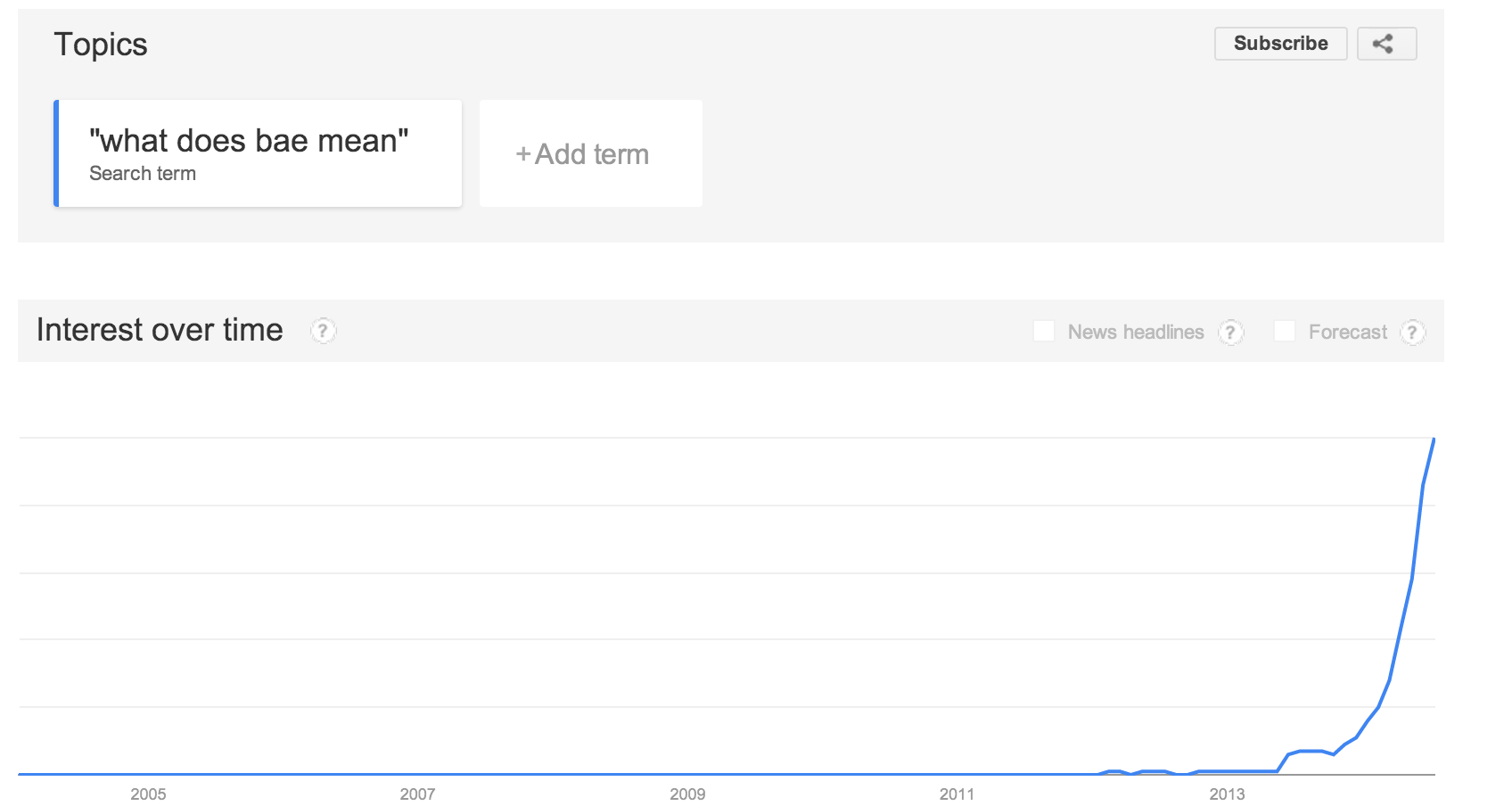On Wednesday, Pharrell dropped a video for his new single, “Come Get It Bae,” which may immediately raise some questions, such as “Come get what?” and “What in the world does bae mean, anyway?”
The short answer: Though this word was used in the 1500s to refer to sheep sounds, today bae is used as a term of endearment, often referring to your boyfriend or girlfriend. Or perhaps a prospect who might one day hold such a lofty position. Bae has also taken on a wider meaning, being used to label something as generally good or cool, as in “This sandwich is bae.”
Say, for instance, you post a picture of you on a yacht with Beyonce and you just so happen to be Jay-Z. You might give that photo a caption like, “Just another Tuesday with my bae. #surfbort” or “When bae looks bae on this bae boat. #boofboof”
There is no doubt that more people are encountering this word and wondering what it means, as evinced by this handy chart from Google Trends:

But there are some competing origin stories.
One tale supposes that bae is in fact the acronym BAE, standing for “before anyone else.” But people often like to make up such origin stories that linguists later discover were absolute poppycock, like the idea that the f-word is an acronym dating back to royal days when everyone needed the king’s permission to get in the sack—so they would be having “fornication under consent of the King.” Great story. Totally untrue.
Others argue that bae is simply a shortened version of babe, which would similarly account for the rare ae juxtapostion. Slangsters do love to embrace the “dropped letter” versions of slang words. When cool gets old, there is coo. When crazy gets tiresome, there is cray. You could do me a solid, or just do me a sol.
The term’s usage took off in 2013 and continues to rise. And as more people say bae, it’s likely that the meaning will shift in any case. When words get popular, one of two things tends to happen, as computational linguist Tyler Schnoebelen explains: “As it gets picked up by more people, its meaning will either calcify or bleach.” That is, harden into meaning only one very specific thing, or expand to embrace a range of meanings.
Take the word weird, as in Weird Al Yankovic, the man who has had such fun parodying Pharrell of late. When first used, that word meant “having the power to control the fate or destiny of human beings.” And that is certainly not the meaning we invoke when referring to Mr. Yankovic.
A good rule of thumb for now at least: if you would use the words boo or babe in some circumstance, you can probably use bae.
More Must-Reads from TIME
- Why Biden Dropped Out
- Ukraine’s Plan to Survive Trump
- The Rise of a New Kind of Parenting Guru
- The Chaos and Commotion of the RNC in Photos
- Why We All Have a Stake in Twisters’ Success
- 8 Eating Habits That Actually Improve Your Sleep
- Welcome to the Noah Lyles Olympics
- Get Our Paris Olympics Newsletter in Your Inbox
Contact us at letters@time.com